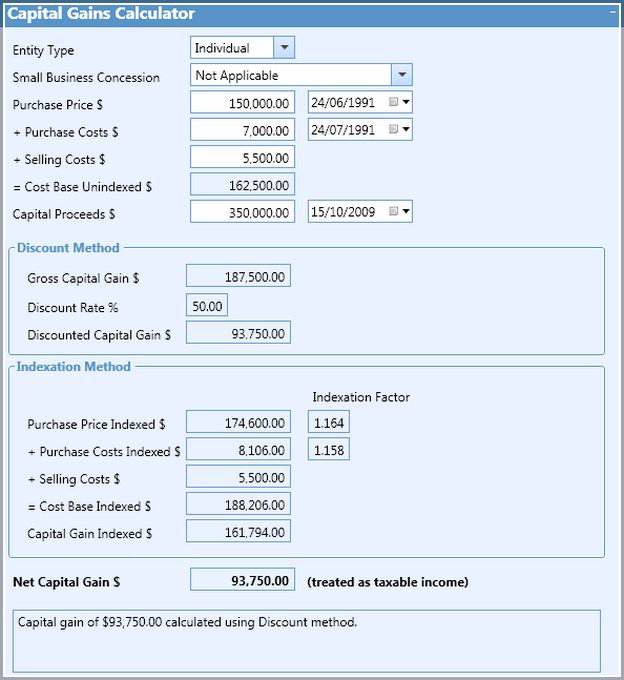EY Tax Calculators & Rates Canada

The IRS allows you to match up your gains and losses for any given year to determine your net capital gain or loss. Typical assets include businesses, land, cars, boats, and investment securities such as stocks and bonds. This often requires that the capital gain or loss on that asset be reported to the IRS on your income taxes. Short-term capital gains are taxed as ordinary income according to federal income tax brackets.
Tax Rate
Things are different if you’re in the business of selling a certain type of asset. Profits from business activity are typically treated as business income rather than capital gains. So if you’re a coin dealer, then profits on the sales of coins you hold in inventory will get taxes as regular business income. However, investors who hold some coins can claim capital gains treatment when they sell. The same is true for real estate developers in comparison to real estate investors. Capital gains taxes don’t work exactly the same way some other taxes do.
Forms & Instructions
The Bond Account’s yield is the average, annualized yield to worst (YTW) across all ten bonds in the Bond Account, before fees. The “locked in” YTW is not guaranteed; you may receive less than the YTW of the bonds in the Bond Account if you sell any of the bonds before maturity or if the issuer defaults on the bond. Additional information about your broker can be found by clicking here. Public Investing is a wholly-owned subsidiary of Public Holdings, Inc. (“Public Holdings”).
How to avoid or reduce capital gains taxes
When an investment is held for 1 year or less, an investor has to pay short-term capital gains tax. The feature of a short term capital gains tax is that it is considered regular income, so an investor will pay income tax on it. Short-term capital gains taxes tend to be higher than long-term capital gains taxes, so your investment may yield a lower return than your expected ROI. This is done to encourage investors to hold investments for a longer period of time. The strategic practice of selling off specific assets at a loss to offset gains is called tax-loss harvesting.
A Complete Guide to Tax Loss Harvesting

Additionally, exploring other specialized tax calculators tailored to specific financial aspects, such as income or investment portfolios, can provide a comprehensive overview of one’s tax landscape. Utilizing these tools ensures a more precise assessment and aids in strategic tax planning across various financial dimensions. As you approach retirement, consider waiting until you actually stop working to sell profitable assets. The capital gains tax bill might be reduced if your retirement income is lower. You may even be able to avoid having to pay capital gains tax at all. Among the many reasons to participate in a retirement plan like a 401(k) or an individual retirement account (IRA) is that your investments grow from year to year without being subject to capital gains tax.
- In most cases, you must pay the capital gains tax after you sell an asset.
- “Collectible Assets” such as coins, metals, and fine art are taxed at 28% as their long-term capital gains tax rate.
- Your carryover amount will, therefore, be any remaining short-term losses along with all your long-term losses.
- Plans are not recommendations of a Plan overall or its individual holdings or default allocations.
- If you have less in short-term losses, then first use any short-term losses you do have, and then take long-term losses to take you up to the $3,000 total.
Public doesn’t participate in PFOF, which means we don’t sell our members’ trades to market makers or third parties. A Public.com portfolio unlocks a unique investing experience, with information tailored to each individual’s portfolio. If you inherit a home, you don’t get the $250,000 exemption unless you’ve owned the house for at least two years as your primary residence. A financial advisor can help you manage your investment portfolio. To find a financial advisor who serves your area, try SmartAsset’s free online matching tool.
High income earners may be subject to an additional 3.8% tax called the net investment income tax on both short-and-long term capital gains. Under current U.S. federal tax policy, the capital gains tax rate applies capital gains tax calculator 2020 only to profits from the sale of assets held for more than a year, referred to as long-term capital gains. The current rates are 0%, 15%, or 20%, depending on the taxpayer’s tax bracket for that year.
Investment Plans (“Plans”) shown in our marketplace are for informational purposes only and are meant as helpful starting points as you discover, research and create a Plan that meets your specific investing needs. Plans are self-directed purchases of individually-selected assets, which may include stocks, ETFs and cryptocurrency. Plans are not recommendations of a Plan overall or its individual holdings or default allocations. Plans are created using defined, objective criteria based on generally accepted investment theory; they are not based on your needs or risk profile. You are responsible for establishing and maintaining allocations among assets within your Plan. Plans involve continuous investments, regardless of market conditions.
As with other assets such as stocks, capital gains on a home are equal to the difference between the sale price and the seller’s basis. Why the difference between the regular income tax and the tax on long-term capital gains at the federal level? It comes down to the difference between earned and unearned income.
If you own an investment for a year or less, then it’s treated as a short-term capital gain. Own it for at least a year plus a day or longer, and it becomes a long-term capital gain. You can break down investments that are subject to taxes on capital gains into two broad categories. If your goal in buying an asset is to sell it to another investor at a future date for a higher price, then you’ll generally be subject to capital gains tax when you sell.
Rebate rates vary monthly from $0.06-$0.18 and depend on your current and prior month’s options trading volume. This rebate will be deducted from your cost to place the trade and will be reflected on your trade confirmation. To learn more, see our Options Rebate Program Terms & Conditions, Order Rebate FAQ and Fee Schedule.
